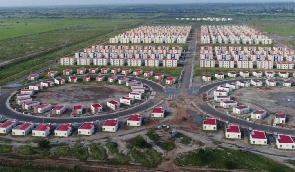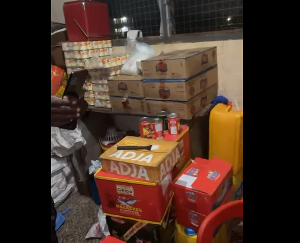Ghana, a country known for its vibrant culture and growing economy, is currently facing a pressing issue that affects thousands of its citizens – the housing crisis, commonly referred to as "rent wahala."
This term aptly captures the struggles and challenges that many Ghanaians face in finding affordable and suitable housing options. But what lies at the heart of this crisis, and what can be done to address it?
At the core of the rent wahala in Ghana is the imbalance between housing supply and demand. The rapid urbanization and population growth in major cities like Accra and Kumasi have led to an increased need for housing, outstripping the available options.
As a result, the limited supply of affordable housing has driven up rental prices, making it difficult for many Ghanaians, especially low and middle-income earners, to secure decent accommodation.
In response to this pressing issue, the Ghanaian government has a pivotal role to play in addressing the housing crisis.
The government, through the Ministry of Works and Housing and the Rent Control Department, is tasked with implementing policies and regulations that aim to ensure access to affordable housing for all citizens.
However, the effectiveness of these interventions often falls short of expectations due to a lack of proper enforcement and oversight.
One of the key issues that the government faces in tackling the rent wahala is the need for stronger rent control mechanisms. The Rent Control Department, which is responsible for regulating rent levels and resolving disputes between landlords and tenants, often struggles to carry out its mandate effectively. Cases of arbitrary rent hikes, unfair eviction practices, and unscrupulous landlords taking advantage of vulnerable tenants are not uncommon, highlighting the need for greater enforcement of rent control laws.
Furthermore, the government must also focus on increasing the supply of affordable housing through targeted interventions such as the construction of low-cost housing units and incentivizing private developers to invest in affordable housing projects. Collaborating with stakeholders in the housing industry, including real estate developers, housing cooperatives, and financial institutions, can facilitate the development of sustainable housing solutions that cater to the diverse needs of the population.
In addition to government efforts, the people of Ghana also play a critical role in addressing the housing crisis. Building community awareness and advocacy around housing rights, promoting tenant associations, and holding landlords and policymakers accountable are essential steps towards creating a more equitable and inclusive housing sector.
Empowering citizens to know their rights, seek legal redress in case of housing disputes, and advocate for better housing policies can contribute to long-term systemic change.
In conclusion, the rent wahala in Ghana is a multifaceted issue that requires a comprehensive and collaborative approach from all stakeholders involved. By strengthening rent control mechanisms, increasing the supply of affordable housing, and empowering the people to advocate for their rights, sustainable solutions to the housing crisis can be achieved. Ultimately, ensuring access to decent and affordable housing is not just a matter of policy but a fundamental human right that must be upheld for a thriving and equitable society.
By Divine Kabu Akplehey
Divinekabu1@gmail.com
Opinions of Thursday, 28 November 2024
Columnist: Divine Kabu Akplehey















